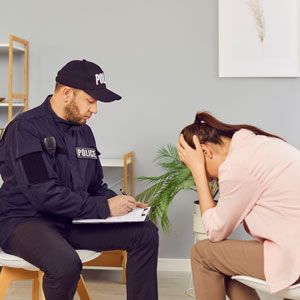
Being the victim of a crime can be one of the most traumatic events in someone’s life. Florida law recognizes this and provides victims with a range of rights and protections—both under the state constitution and specific laws. These rights ensure that victims are treated with dignity, their voices are heard, and they can seek justice and compensation.
1. Who Represents the Victim in a Criminal Case?
In Florida, the prosecutor (called the Assistant State Attorney) handles the criminal case on behalf of the State of Florida—not the individual victim. This means:
- The victim is not the prosecutor’s client.
- The prosecutor’s role is to pursue justice for society, which might not always align with what the victim wants.
That’s why some victims choose to hire their own attorney, especially if they want to:
- Make sure their rights are fully exercised.
- Seek financial restitution.
- File a civil lawsuit against the offender or others responsible.
2. Marsy’s Law: Florida’s Crime Victims’ Bill of Rights
In 2018, Florida voters passed Marsy’s Law, a constitutional amendment (Article I, Section 16 of the Florida Constitution) that gives crime victims strong legal rights, including:
- To be treated with fairness and respect.
- To be protected from the accused, including privacy protections (your identity can be withheld from public records).
- To be notified of important court proceedings and any release or escape of the accused.
- To be present at court hearings.
- To be heard during plea bargains, sentencing, or parole hearings.
- To receive restitution from the convicted person.
These rights apply to victims of crimes ranging from theft and assault to sexual violence, DUI, and even financial fraud.
3. Victim’s Rights Under Florida Law (Statute 960.001)
Florida law also reinforces Marsy’s Law through Statute 960.001, which outlines how victims should be treated by law enforcement and the courts. Victims are entitled to:
- Regular updates on the status of their case.
- Information about protective measures and services.
- Support in preparing a Victim Impact Statement—a document describing how the crime affected your life, which can be read during sentencing.
4. Can You Speed Up the Criminal Process?
Yes. Under Florida Statute 960.0015, the prosecutor may file a demand for a speedy trial if:
- The state has shared all required evidence with the defense.
- The court has delayed the trial multiple times (usually over the state’s objection).
- Enough time has passed since charges were filed (at least 125 days for felonies and 45 days for misdemeanors).
However, even then, courts must balance the victim’s right to a speedy trial with the defendant’s right to due process.
5. What Financial Help is Available to Victims?
Florida offers two main ways victims can recover money:
A. Court-Ordered Restitution
If the offender is convicted, the judge can order them to pay for:
- Medical expenses
- Lost wages
- Lost of damaged property
- Counseling costs
However, this only works if the offender has the ability to pay.
B. Florida Crime Victim Compensation Program
Even if the offender can’t pay, you might qualify for financial help from the state, including:
| Benefit Type | Description |
|---|---|
| Medical & Counseling | Reimbursement for treatment related to the crime |
| Lost Wages | For time missed at work due to physical injuries |
| Funeral Costs | Up to a set amount if the victim was killed |
| Relocation Help | For victims of sexual assault, domestic violence, or human trafficking |
| Property Loss (Seniors/Disabled) | Up to $500 per claim if crime caused serious loss in quality of life |
To be eligible, you must:
- Report the crime within 72 hours (unless you have a valid reason for delay).
- File your claim within 1 year (or 2 years with good cause).
- Not have contributed to the crime (for example, by breaking the law yourself).
6. Do You Need an Attorney as a Victim?
You don’t have to have an attorney, but it can be helpful if:
- You need help navigating the criminal system.
- You want to opt-in for Marsy’s Law protections.
- You want to file a lawsuit against the offender or someone else responsible (like a negligent business or property owner).
- You’re seeking to recover substantial restitution.
- You feel as if you are not receiving proper notification of court proceedings.
- You feel as if the prosecutor is not adequately taking your wishes into consideration.
You can also access national and statewide victim support resources, including:
- National Domestic Violence Hotline
- RAINN (for sexual assault)
- Victim Connect Resource Center
- Florida Network of Children’s Advocacy Centers
In Summary: What You Can Do As a Victim in Florida
✅ Be informed about your rights under Marsy’s Law
✅ Stay involved in the legal process
✅ Ask for updates and submit a Victim Impact Statement
✅ Seek restitution through the courts or the state
✅ Get legal help if you want stronger protection or to pursue a civil lawsuit
✅ Contact local victim services for support, guidance, and resources
If you or a loved one is a victim of a crime, know that you are not alone, and you do have rights. Understanding those rights is the first step to getting justice, support, and healing. If you feel as if you are not receiving all the rights you are legally entitled to, or need additional assistance navigating the criminal justice system as a victim, please call the Law Office of Michael D. Barber for a free consultation.

You need an experienced attorney who will listen, understand,
and take a cutting-edge approach to your defense to get you
the best result - Call Us Now - (407) 890-8000
